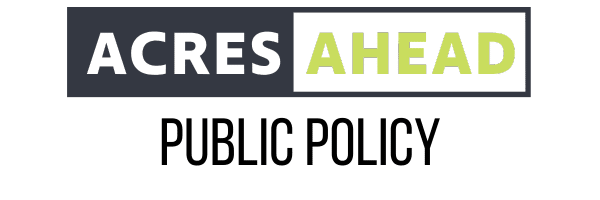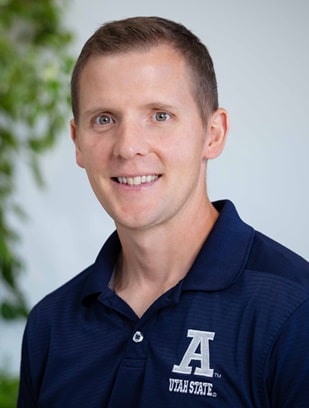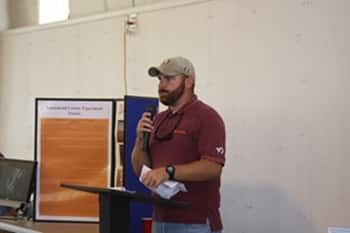Why can’t I access this file?
Possible reasons you cannot access this file:
- Your membership has expired.
- The file is restricted to certain users.
If you are seeing this message in error, please contact us.

Possible reasons you cannot access this file:
If you are seeing this message in error, please contact us.

Possible reasons you cannot access this file:
If you are seeing this message in error, please contact us.

Possible reasons you cannot access this file:
If you are seeing this message in error, please contact us.

Possible reasons you cannot access this file:
If you are seeing this message in error, please contact us.

House of Representatives Agriculture Committee Chairman Glenn “G.T.” Thompson (R-PA) said this week that his committee will complete its work on the Farm Bill reauthorization effort to craft a new multi-year law addressing USDA programs and other things before Memorial Day. Meanwhile, this week, Senate Majority Leader Chuck Schumer (D-NY) wrote a Dear Colleague letter to senators that omits the Farm Bill entirely from a laundry list of items to address in the remainder of the year. You will note the partisan tone of Schumer’s letter that is sure not to impress Republicans — which is perfectly fine with Schumer. Nevertheless, it does lay out a broad agenda of to-do items, notably including funding Ukraine defense efforts. Thompson is a seasoned legislator who is well-respected by Republicans and Democrats alike, and he claims to have a solution that will break an impasse in the ongoing negotiations about nutrition programs. Whether he will succeed on his timeline remains to be seen. While the House and Senate each conduct business independently of each other, it is not ideal to do a bill that foreseeably cannot advance in the other chamber for an extended period of time. Much more preferable is to be able to create and rely upon momentum to move a bill through both chambers and then to the president’s desk for signing into law.

The FERT Foundation is home to 12 research projects that focus on fluid fertilizer and 4R optimization. Each week we have been featuring a different researcher in this publication, and this week, we’d like you to meet 4R Researcher Dr. Matt Yost, and introduce his project of “Stacking and Intersecting Nutrient and Irrigation 4Rs.”
Researcher:
Researcher Dr. Matt Yost, Assistant Professor at Utah State University, has been leading the project “Stacking and Intersecting Nutrient and Irrigation 4Rs” funded from 2019 to 2024. This project explores how individual and stacked nutrient and irrigation 4R’s intersect to improve the sustainability of major forage, fruit, grain, and vegetable crops in the West. It addresses both priority cropping systems and priority issues outlined in the request for proposals. Four major efforts include producer surveys to quantify 4R adoption and barriers, five coordinated field experiments that utilize a new innovative way to evaluate stacking nutrient 4R’s across crops, utilization of three existing stacked irrigation 4R experiments to quantify how 90 water conservation treatments influence nutrient uptake and efficiencies, and a dynamic multi-state coordinated outreach program to improve adoption of nutrient and irrigation 4R’s. Intersecting nutrient and irrigation 4R’s will guide investments by growers and industry towards combinations that result in the most profitable and sustainable outcomes.
Dr. Yost’s work aims to:

Possible reasons you cannot access this file:
If you are seeing this message in error, please contact us.

The FERT Foundation is home to 12 research projects that focus on fluid fertilizer and 4R optimization. Members had the opportunity to meet researchers and learn about these projects during last week’s Fertilizer Research Forum. Each week we have been featuring a different researcher in this publication, and this week, we’d like you to meet 4R Researcher Dr. William Frame.
Researcher: Dr. William “Hunter” Frame is a native of Virginia and a graduate of Virginia Tech (B.S. and Ph.D.), as well as the University of Tennessee Knoxville (M.S.). He specialized in Crop and Soil Environmental Sciences and Plant Sciences, with his advanced degrees focusing on nitrogen fertilizer management in winter wheat, corn, and burley tobacco systems. Since May 2012, he has been a faculty member at Virginia Tech, serving as the Field Crop Agronomist. His program concentrates on addressing agronomic challenges in cotton production and enhanced efficiency nitrogen fertilizer management for non-legume field crops. Currently, he serves as the project director on the TFI 4R funded grant ($874,980): “An Integrated Approach for Nitrogen Management in Upland Cotton (Gossypium hirsutum) across the U.S. Cotton Belt” from 2019 to 2024. Outside of his research and Extension program responsibilities, Dr. Frame enjoys watching his daughter play softball and bow hunting for whitetail deer.
Dr. Frame’s work aims to:

Possible reasons you cannot access this file:
If you are seeing this message in error, please contact us.

On March 15, 2024, EPA released the draft risk evaluation under the Toxic Substances Control Act (TSCA) for formaldehyde for public comment and peer review. The EPA preliminarily determined that formaldehyde poses an unreasonable risk in 3 conditions of use (COU) related to fertilizer. TFI has developed a one-pager on formaldehyde. Please reach out to Reagan with any questions or to get involved in TFI’s response to this evaluation.